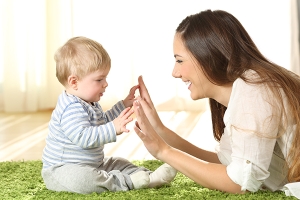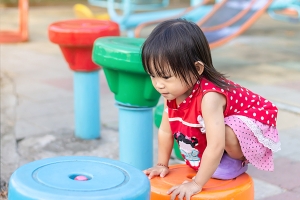
Have you ever heard your 6 year-old yelling, “Die, die, die!” at the top of his lungs while playing video games? Or, caught your teen hiding out and playing Fortnite instead of studying or sleeping? If so, you probably share some growing concerns about the negative effects of violent video games.
In the wake of a series of tragic mass shootings in our schools, national debates are raging over whether violent video games cause real life aggressive or violent behavior. Also in question is whether kids are becoming desensitized to violence as a result of playing them. Finally, with the rising number of youth experiencing gaming addiction, it might be time for parents to take a closer look at what (and how much) our screen-focused kids are playing.
What is a “violent” video game?
Violence, as defined by Merriam-Webster’s online dictionary, is “the use of physical force so as to injure, abuse, damage or destroy.” A violent video game is one that features these elements.
Fortnite, a violent video game, has risen to alarming popularity with over 40 million downloads since its release in fall 2017. An interactive, multi-player adventure, it is the latest gaming trend in a rash of first-person shooter games, often displaying guns and violence without the associated blood and gore. Other popular games of this genre include Call of Duty, Halo and PlayerUnknown’s Battlegrounds (PUBG).
Do violent video games cause violent behavior in real life?
“The simple answer is, we don't know,” says Sierra Filucci, executive editor of parenting content at Common Sense Media. “While plenty of research has been done to try to figure out if violent video games cause aggressive or violent behavior, nothing has proved definitively that it does or doesn't.”
But ask any parent if their child has ever gotten agitated, frustrated, or more prone to argue during or after playing a video game, and the answer will most likely be yes.
An article on Psychology Today’s website observes: “Fans of violent video games often say, ‘I’ve played hundreds of hours of violent video games and haven’t murdered anyone!’ But a lack of felonies doesn’t mean violent video games have no effect. Anyone who has ever felt excited, tense or frustrated while playing a video game has been ‘affected’ by them.”
Filucci says, “The research points toward exposure to violent video games being one factor that could cause aggressive or violent behavior, especially for kids who are already at risk, such as kids who experience violence at home, or who are exposed to substance abuse, or other risk factors.”
Are kids becoming desensitized to violence?
Again, we don’t really know. “Repeated and long-term exposure to violent video games can cause desensitization to violent media, but doesn't necessarily mean kids are unaffected by real-life violence,” explains Filucci.
If parents allow kids to play violent video games, she suggests mitigating some of their affects by discussing the content, putting it in context and helping them develop empathy in other ways. It’s also a good idea to put time limits on game play.
Filucci adds, “Fortunately, parents have a lot of control over what kind of media kids are exposed to at home, especially when kids are young. They can help kids select non-violent or less violent games, movies, and TV shows to watch.” She also recommends parents play with and watch their kids play, in order to know what they are doing and have more influence over what they play and see.
Why else should parents be concerned?
Video game addiction is a growing issue for today’s families. The World Health Organization (WHO) recently classified “gaming disorder” as a formal medical diagnosis. Parents can step in and use the American Academy of Pediatrics media guidelines to set and enforce clear, age-appropriate limits—along with encouraging kids to pursue other interests, such as playing outdoors, getting enough sleep, focusing on school work, participating in sports or physical activity, and socially engaging with friends and family members.
Along with exposure to violence and the potential for addiction, parents should also be aware that adult-themed games like Fortnight attract young kids with animated, cartoonish graphics. They also push in-game purchases, allow text chats with strangers, and over-sexualize female characters—all of which are important, impactful topics to discuss.
It’s up to parents, of course, to decide if their kids are allowed to play violent video games. It is critical to establish appropriate guidelines and be prepared to have relevant family conversations about virtual vs. real-life violence.
--------
Lisa Pawlak is a contributing writer and local mom of two boys.
--------















